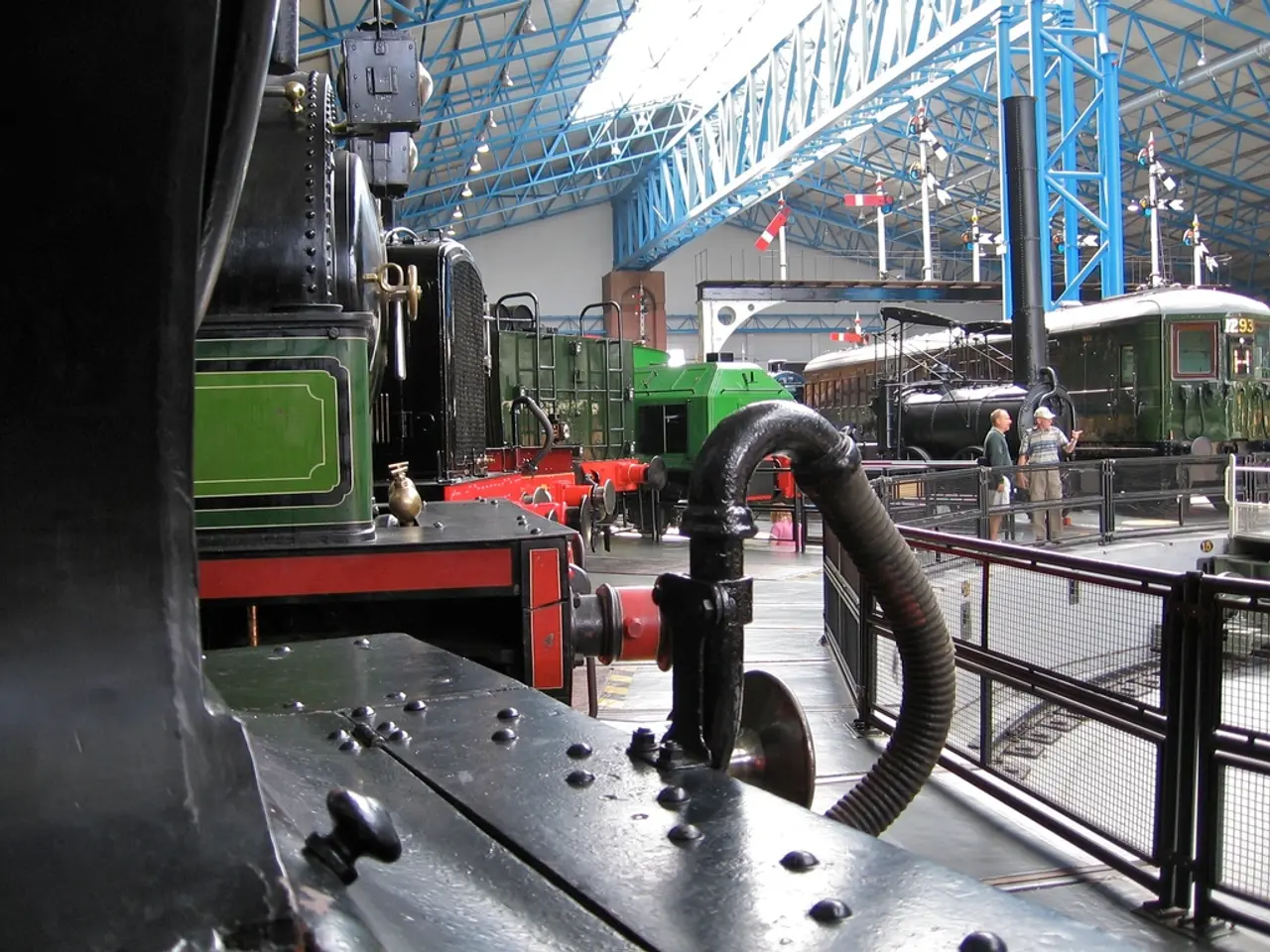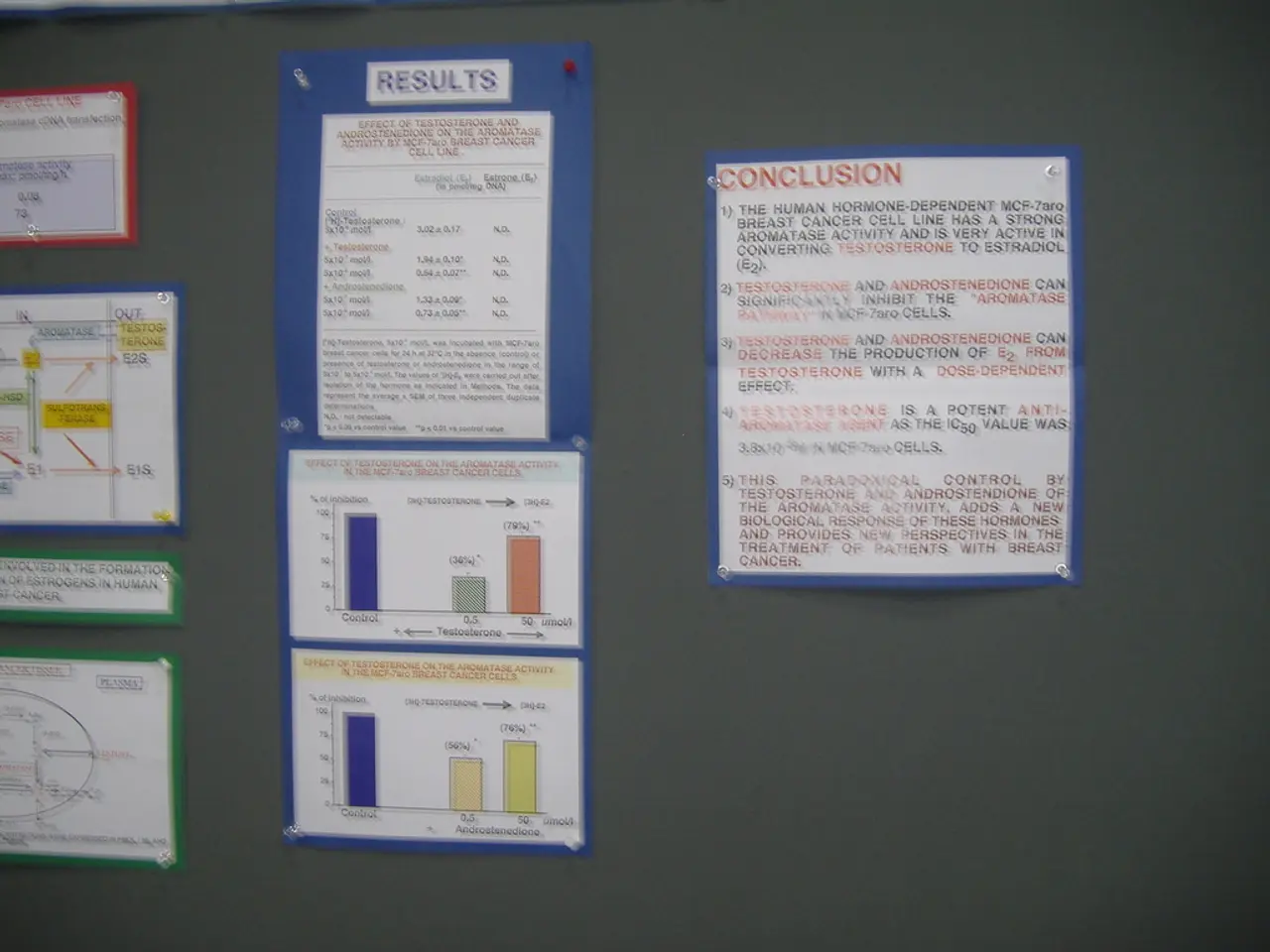U.S. Steel Industry Struggling Amid Failed Agreement: 'Time is Short' as 25% Tariffs Undermine Starmer's Pledge
The recent US-UK trade deal has left the British steel industry in a precarious position, with steelmakers still facing significant tariffs when exporting to the American market. This is due to the ongoing steel and aluminum tariffs under Section 232 of the Trade Expansion Act of 1962, which are designed to protect national security by addressing unfair trade practices and global excess capacity in steel production.
While the US increased these tariffs on steel and aluminum imports from most countries to 50% as of June 4, 2025, imports from the UK remain at a 25% tariff rate. This situation limits the competitiveness of British steel exports in the US market compared to domestic and other foreign producers subject to higher tariffs.
The Society of Motor Manufacturers and Traders (SMMT) described the agreement as a 'huge relief' for the car and aerospace industries, as they now benefit from reduced tariffs. However, the steel industry continues to face these barriers, creating a trade cost disadvantage for British steelmakers. The 25% tariff keeps British steel relatively more expensive for US buyers, potentially limiting market share and export growth.
The possibility of tariffs being raised or quotas implemented creates an unstable trade environment, complicating long-term planning for British steel producers. This uncertainty about future tariffs or quotas introduces further pressure on the industry, with producers needing to focus on non-US markets or increase efficiency to offset tariff impacts.
The UK government has protective measures and financial support mechanisms like export finance to mitigate tariff impacts, but the uncertainty remains. Gareth Stace, director-general of UK Steel, expressed concern about the delay in securing a UK-US steel deal, as every day of delay costs Britain's steel-makers significantly.
Talks aimed at securing a tariff-free deal have foundered over rules on the origin of steel produced in the UK. The steel industry, including Tata Steel in South Wales and British Steel in Scunthorpe, remains in limbo, with contracts being lost, investment decisions on hold, and uncertainty affecting business decisions.
Meanwhile, the car and aerospace industries in Britain have benefited from the deal, with tariffs reduced from 27.5% to 10%. However, the steel and aluminium sectors are still subject to high US import charges, creating a double blow for the industry. The US administration imposed steep tariffs on these sectors earlier this year, and the steel industry, in particular, continues to struggle with these tariffs.
For aerospace firms such as Rolls-Royce, tariffs have been reduced from 10% to zero, but they may still be indirectly affected by global supply chains. The steel industry, including Tata Steel and British Steel, remains in limbo, with the tariff reprieve only lasting until July 9.
In summary, the steel industry was excluded from a full tariff exemption under the US-UK deal mainly due to US national security policies under Section 232 tariffs. This leaves British steelmakers facing significant tariffs and uncertainty in the US market, constraining their export potential and necessitating government and industry efforts to manage the impacts.
- Despite the reduction of tariffs in the car and aerospace industries, the steel industry in the UK remains vulnerable due to ongoing significant tariffs under Section 232 of the Trade Expansion Act, making British steel relatively more expensive for US buyers.
- The ongoing uncertainty about future tariffs or quotas poses a significant challenge for British steel producers, requiring them to focus on non-US markets or increase efficiency to offset any tariff impacts.
- Gareth Stace, director-general of UK Steel, emphasizes the need for a prompt resolution to secure a UK-US steel deal, as each day of delay significantly impacts Britain's steel-makers, with investments on hold and uncertainty affecting business decisions.





